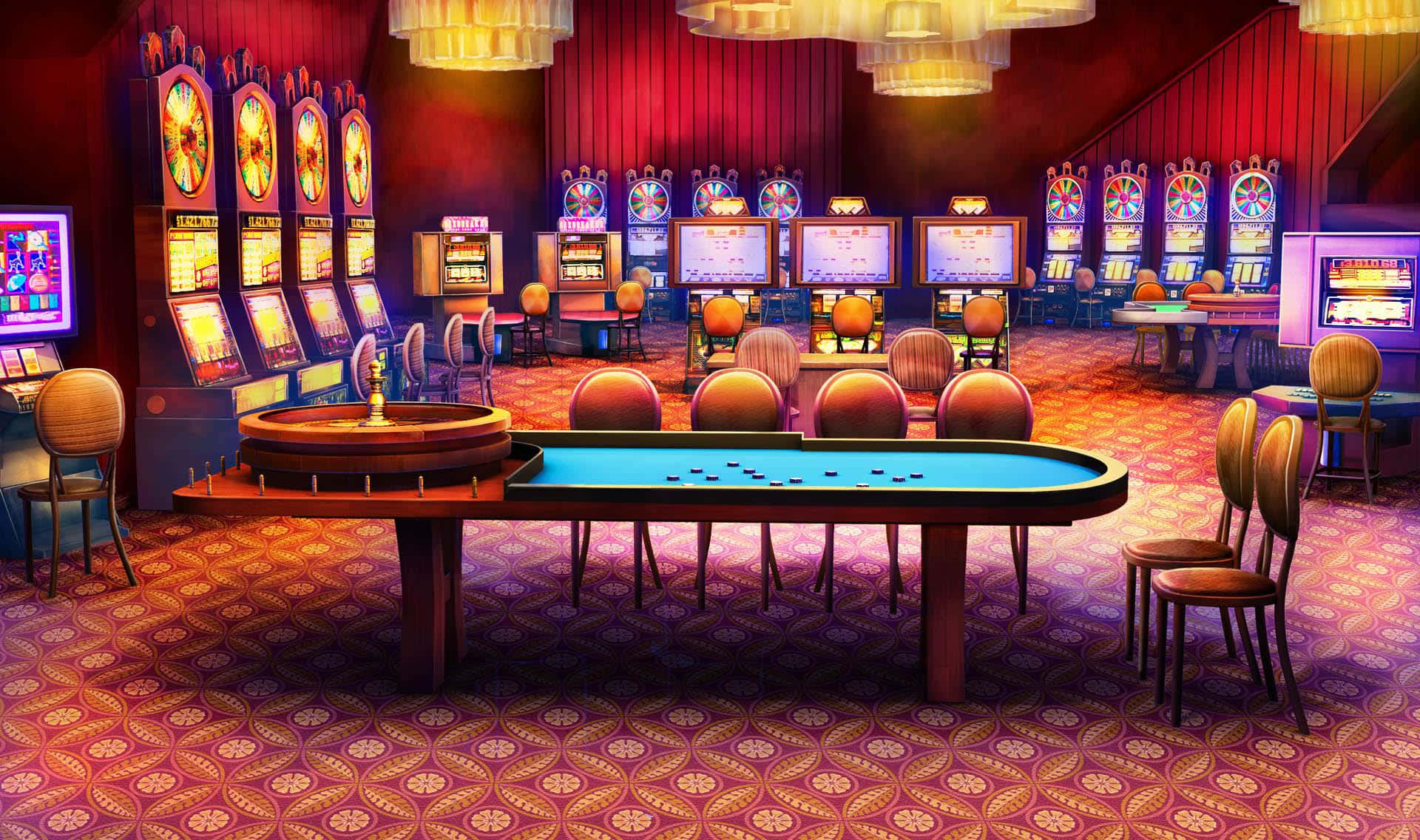Casino entertainment have long been an integral part of human culture, providing not just entertainment but a fascinating reflection of our hopes, wishes, and anxieties. From the turning reels of a slot machine to the tactical play of poker, these games represent a spectrum of human sentiments and experiences. At their core, casino games are not just a chance to earn cash; they are a microcosm of life itself, where danger and gain converge and fortunes can change in an instant.
As players assemble around tables or sit in front of brightly lit machines, they engage in a ceremony that transcends mere playing. These games echo our innate desires for relationships, excitement, and the pursuit of luck. They also disclose deeper truths about human behavior, such as our relationship with chance and the adrenaline of uncertainty. In exploring casino games, we discover not only the mechanics of play but also the intricate pattern of the human experience, showcasing our intertwining narratives of aspiration and reality.
The Psychology of Gambling
Wagering is deeply rooted in human psychology, tapping into various feelings and desires. The excitement of taking risks is a fundamental aspect that attracts participants, whether it’s excitement of spinning a roulette or the excitement of drawing a winning hand in a poker game. This adrenaline is often compared to other forms of excitement, as the uncertainty of outcomes triggers a distinct psychological response. Gamblers often find themselves captivated by the chance of striking it rich, leading to an almost magnetic draw toward casino games.
Additionally, a crucial component of the psychology behind gambling is the concept of hope and aspiration. Players often indulge in dreams of financial freedom and the luxurious lifestyle that can accompany winning. This hope fuels their ongoing participation in casino games, as it provides a sense of meaning and the conviction that a transformative win could be just one bet away. The story of beating the odds and achieving success resonates with many, reinforcing their commitment to play and involve themselves with these games.
Finally, social aspects play a crucial role in gambling psychology. Gambling venues are designed to foster social interaction, where gamblers gather to share the experience of wins and losses. This communal aspect not only amplifies enjoyment but also influences behavior, as individuals often imitate the actions of others around them. The social validation found in mutual thrill can magnify the emotional experience, making casino games a reflection of not just personal desires but also shared involvement within the gambling community.
## The Dual Nature of Risk and Reward
Casino games embody the delicate balance between danger and gain that resonates profoundly with human psychology. The thrill of placing a bet is often accompanied by a jolt of energy, as participants are confronted with the possibility of a huge payout, yet conscious of the possibility to suffer losses. This twofold experience reflects a essential aspect of life: the decisions we face often come with intrinsic risks, and the chase for gain can drive us to take chances we might not typically consider. In this way, gambling activities echo real-world choices, enticing players to gamble not just their money, but also their dreams.
The allure of big prizes and payouts fuels a wave of hope, encouraging gamblers to envision a better future that could manifest from a lucky spin of the roulette or dealing of a hand. This hope can motivate individuals to engage in greater risks, pushing them to take greater risks in search of monetary success. However, just as in life, the results of these decisions can lead to both victory and loss. https://u888.cx/ The narratives of both big winners and those who have lost everything at the tables demonstrate the unpredictable nature of chance and its significant impact on our lives.
Ultimately, the experience of engaging with gambling activities serves as a strong reminder of the human condition. Every game played is loaded with the tension of uncertainty, as gamblers weigh the gains against the dangers. This interaction not only highlights the excitement that comes with betting but also reveals the risks that come with the urge for more. As we explore the complexities of choice and consequence in both the casino and in life, we find that the search for benefit shapes our identities and experiences in deep ways.
Society and Loneliness in Gambling Culture
Casino culture is a distinct mix of social engagement and individual pursuit, reflecting the contrasts of human experience. Gamblers often gather around games, experiencing in the excitement of the action, celebrating wins, and sympathizing over losses. This social aspect is vital, as it fosters a sense of belonging and camaraderie among varied groups of people. Regular visitors to gaming establishments may form friendships and establish routines, turning the casino into a second home where they feel linked to a larger community of gamblers.
However, the allure of casino games can also result to loneliness. As individuals become immersed in the thrill of playing, they may withdraw from personal relationships or neglect to engage with the world outside the gaming space. For some, the pursuit of a windfall can overshadow real connections, leading to isolation. The situation of being surrounded people yet experiencing solitary is not uncommon, as the focus shifts from collective fun to the private stakes of each player’s journey.
This interplay of society and isolation creates a vivid tapestry that defines casino atmosphere. It showcases the complexity of human interactions, where joy and despair coexist. Casinos serve as both a sanctuary for social engagement and a platform for individual struggles, demonstrating how deeply entwined our desire for connection and the personal quest for wealth can be. In navigating this environment, players confront their own narratives—seeking both the rush of the game and the companionship of fellow players, eventually reflecting the broader spectrum of individual experience.

